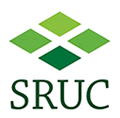Prof W Powell
No more applications being accepted
Funded PhD Project (European/UK Students Only)
About the Project
Dulse (Palmaria palmata) is a red seaweed distributed around the lower tidal and subtidal zones of American and European North Atlantic coasts. It has been collected for human consumption and for animal fodder for centuries. There are now developing markets focused on its nutritional value, on extracting high-value bioactive compounds for use in pharmaceuticals and cosmetics, as a substrate for biofuel production, and as feed additive for ruminants. Recent studies have shown the potential of red seaweed to reduce methane emissions (up to 99%) which could promote higher growth rates and feed conversion efficiencies in ruminants. This antimethanogenic effect has been attributed to the presence of bioactives such as bromoform and dichloromethane.
A major contribution to the development of cultivated dulse will be to understand the genetics of its antimethanogentic effects and of high value biochemical traits. This will lead to improvements in identifying locations for off-shore production with locally collected germplasm and for genetic improvement of stock for cultivation on-shore.
Dulse is not currently cultivated commercially, though that will be necessary as greater demand results in higher pressures on wild stocks. Experimental production in the sea on ropes and on land in tanks, is under investigation. This project will initiate this process by developing molecular markers for dulse, surveying genetic variation around the UK and N. Atlantic coasts, developing mapping populations and detecting QTL for biochemical traits within those populations. Objectives of the Research are to:
1. Develop a marker platform and genetic maps in dulse.
2. Survey molecular diversity for dulse.
3. Establish populations for trait mapping.
4. Detect and map QTL for bioactive compounds of economic importance.
5. Evaluate effects on methane production, estimate genetic variation and map QTL.
The student will be registered at the University of the Highlands and Islands and mush have a minimum of a 2:1 honour degree or Masters degree in a relevant subject.
The student will be expected to have a strong foundation in molecular genetic analyses. It would be desirable that the student is well versed in laboratory skills such as biochemical assay techniques.
The cross-institute and cross-discipline nature of this project will equip the student for employment in aquaculture or in terrestrial plant breeding. The student will learn a unique combination of skills that are ideal for subsequent employment in research and development of seaweed aquaculture.
This studentship will be based at SRUC in Kings Buildings but will be expected to spend time at the Scottish Association for Marine Science (SAMS) site at UHI near Oban to work on the experimental/laboratory aspects of the project.
Funding Notes
The student will receive an annual student stipend of £15,099 at the 2019/20 rate. This studentship will fund to pay the tuition fees at home fees rate only. International students must provide evidence of sufficient funds to cover the higher international student tuition fee level (approximately £10,800 per year would be required). The expected start date is the 1st October 2019 with potential to start later in the academic year depending on candidate requirements.

 Continue with Facebook
Continue with Facebook

